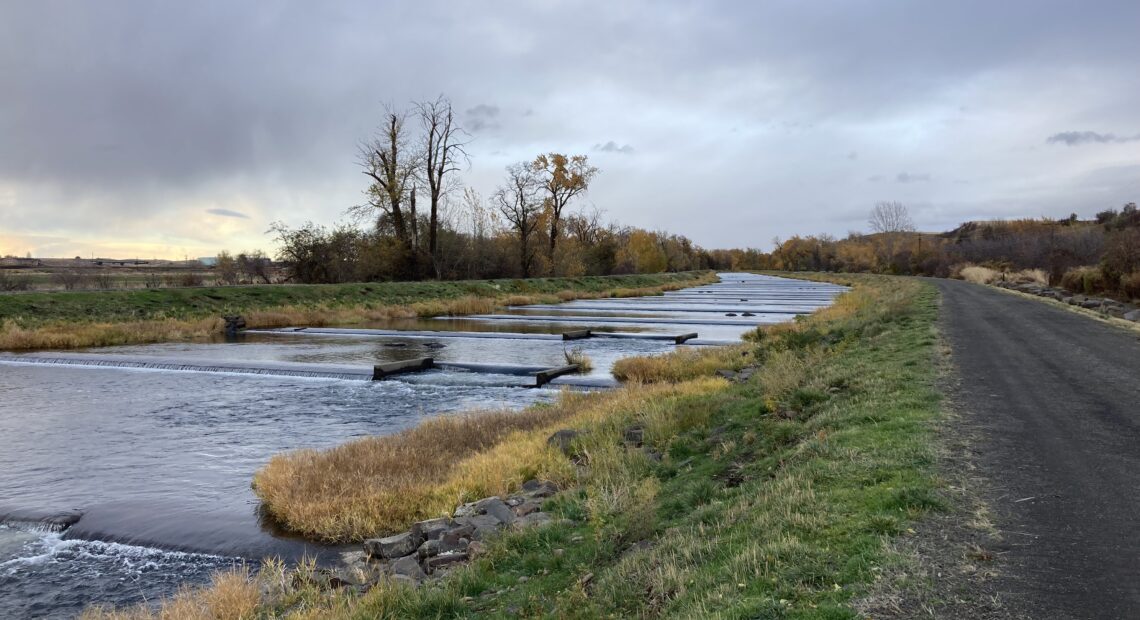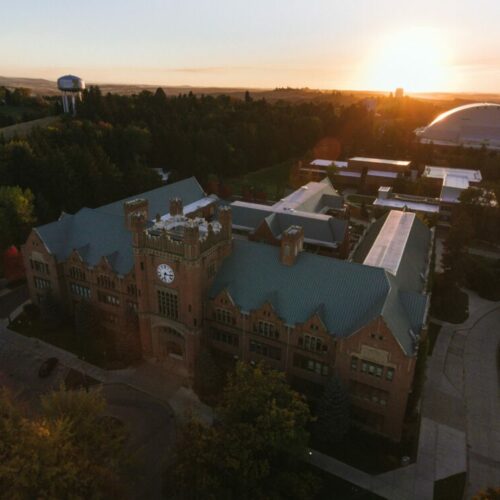
‘It’s a crisis’: How the shortage of counselors is affecting the rural Northwest
watch
Listen
(Runtime 3:49)
Read
By Rachel Sun and Susan Shain
Editor’s note: If you or someone you know is struggling with mental health, support is available by calling or texting the national Suicide and Crisis Lifeline at 988.
Nichole Konen Giraldo lives in Walla Walla, Washington, a town of about 30,000. This past summer, she lost her husband.
“You’re struggling, you’re sad, you’re depressed, you’re suicidal,” she said. “I mean, you have all these things going through your brain and you just need someone to talk to.”
Giraldo has been searching for a long-term grief counselor for five months. She’s called everyone she can think of. Most don’t even call her back.
“You’re left to basically just sink or swim,” Giraldo said. “It’s a crisis in this community.”
Across the country, there’s a shortage of behavioral health care providers — and it’s particularly pronounced in small towns.
According to the Department of Health and Human Services, roughly one-third of the U.S population lives in an area short on mental health providers. Of that group, over two-thirds are in rural or partially rural places.
The challenges can be even greater for immigrants, who may experience a range of cultural and structural barriers, including language, stigma and cost. Or for people with low incomes.
Alyssa Robinson is a therapist in St. Maries, Idaho, which has a population of around 2,500. She said it’s especially difficult to find providers who take Medicaid.
Her clinic is one of just three in the town, and one of the few in that area to take Medicaid. For providers, she said, Medicaid requires more work and offers less reimbursement than other types of insurance.
“You’re doing more work for less pay,” she said.
Robinson has some clients who drive nearly two hours to see her, simply because she takes Medicaid.
For some rural patients, telehealth services can help bridge the gap. But internet access isn’t always reliable in remote areas. And Robinson said some patients don’t want to seek therapy over a video call.
Denise Metzger is a social worker in Coeur d’Alene, Idaho. She said even though her part of the state isn’t rural, it’s still underserved. Many therapists have waitlists, especially if they serve clients with specialized needs or certain insurers.
“If you have Medicaid or Medicare, then the amount of people that you can see are very limited. I give out the same names and same numbers to pretty much a lot of the people,” she said. “In terms of children’s therapies, that’s pretty limited as well.”
That shortage puts a huge burden on patients, said Cassidy Brewin, who works in behavioral health for Walla Walla County.
“They need care now,” she said. “In the same way that somebody could walk into an urgent care if they had a physical health need and get services that same day.”
Waiting for months, in other words, is not realistic.
In rural areas, Brewin pointed out that the dearth of specialized providers and facilities can strain other services, as many of those seeking care will call 911 or go to the emergency room.
“If you look at the state of Washington, every single county at least has a partial shortage in mental health providers,” she said. “This is not something unique to our county, but I think the rural areas are struggling more than our more urban counterparts.”
In the state as a whole, there are around 15 licensed mental health providers for every 10,000 people. In Walla Walla County, the number of providers is a fraction of that: around five per 10,000 people.
Though the need is clear, the solutions are less so. Some strategies focus on reducing paperwork and increasing reimbursement for providers.
Others focus on simply getting more people into the field.
And that’s no easy hurdle: While the median pay for jobs in physical health care, such as registered nurses, is much higher than those in behavioral health care, according to the Bureau of Labor Statistics, many positions still need advanced degrees. And then there’s the issue of burnout.
“There’s always been tremendous need and it’s a challenging field,” said Teresa Claycamp, who works at Washington’s Health Care Authority. “The pandemic really greatly exacerbated the workforce shortage.”
Some programs work to support clinicians in rural and underserved communities by providing workforce training and a chance to connect with each other.
“For me, it feels like, sometimes, a lifeline,” Metzger, the social worker in Coeur d’Alene, said of one such program. “I have presented cases for feedback from other professionals. And that has been really helpful, even if it’s just to get some validation, like, ‘Yep, that one’s a really hard one.’”
To pull more providers into the field, Washington’s Health Care Authority also launched a public awareness campaign in 2021.
It highlights behavioral health careers that don’t require graduate degrees, such as substance use disorder professionals and peer counselors. It aims to attract providers who otherwise might not have considered jobs in mental health. The state has introduced a behavioral health apprenticeship program, too.
“There’s lots of different pathways in,” Claycamp said. “It’s not just this cookie cutter way of getting to a career.”
Another Washington state initiative helps pay for master’s programs for aspiring counselors, therapists and social workers. After graduating, those students must spend three years working at select community agencies or tribal health centers. In Walla Walla County, for instance, there are three agencies that would qualify.
Ryan McKown believes that strengthening the student-to-therapist pipeline is a crucial piece of the solution. He’s the executive director at Blue Mountain Health Cooperative, a free walk-in counseling center in Walla Walla where master’s level students treat patients.
“It’s a real challenge to go from a master’s graduate to licensed social worker, providing counseling with a full schedule, making a living,” McKown said.
When their clinicals are finished, McKown said many of his students want to stay in the area. But about half end up leaving, because they can’t find jobs. Or they can’t find therapists to supervise them as they work toward their licenses.
Others choose to do telehealth, because small town life has unique challenges.
“You know your neighbors, you run into people that you know on the street, in the grocery store,” McKown said. “And the lack of separation between working in the mental health field and one’s personal life can also be a barrier.”
















